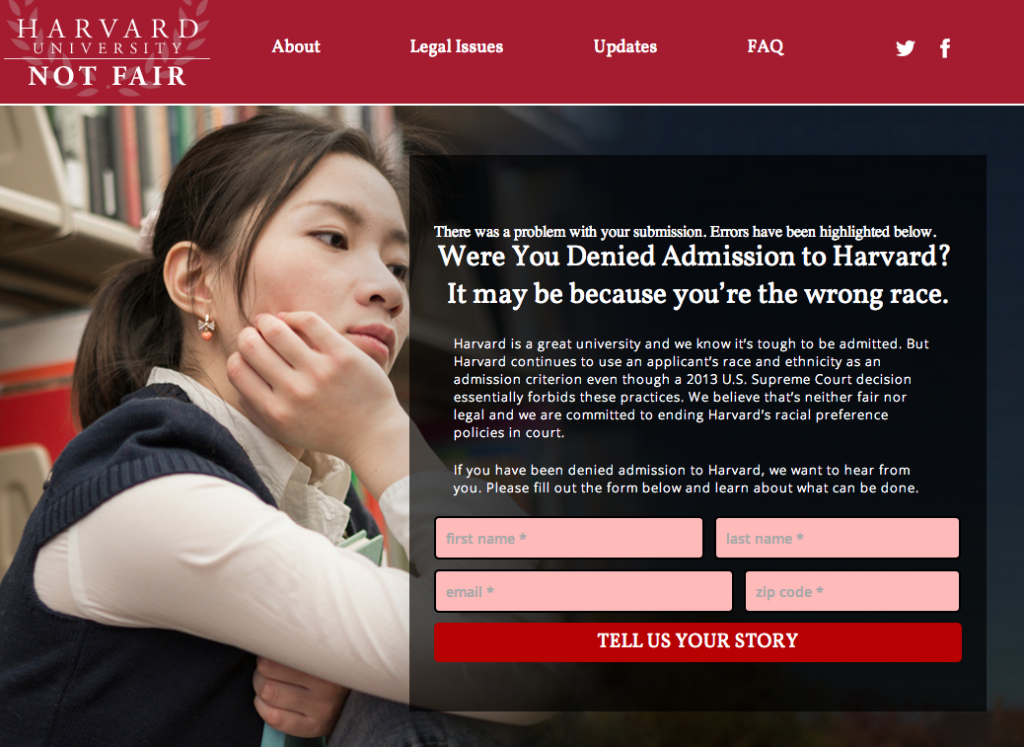Image via harvardnotfair.org
Sulking over your college rejection letter? One anti-affirmative action evangelist wants to hear from you—and make you a part of his political crusade.
Edward Blum, executive director of the conservative Project on Fair Representation, launched three websites this month in search of students who’ve been denied admission to Harvard, the University of Wisconsin-Madison or University of North Carolina-Chapel Hill. Featured on the homepage of each site are photos of studious-looking Asian Americans.
“Were you denied admission to Harvard?” the page asks. “It may be because you’re the wrong race.” (Tell that to Mom!)
As Colorlines argues in this well-reported piece, the campaign seems like a blatant attempt to convince Asian Americans that they’re victims of their own success under affirmative action policies, and then use them as political pawns. Blum aims to gather testimonials from students and eventually file a lawsuit to challenge universities that use applicants’ race and ethnicity as admissions criteria.
Asian-Americans are commonly stereotyped as universally successful, wealthy and high-achieving, and therefore make for a compelling foil to the experiences of African-Americans and Latinos. “Asian-Americans have been used over and over and over again to make the point that racism is not an insurmountable disadvantage if you’re willing to just shut up and put up and work hard enough to succeed,” says Scot Nakagawa, senior partner at the racial justice think tank ChangeLab. Blum’s campaign carries the stereotype a step further by implying that not only is affirmative action unnecessary but that it harms Asian Americans while unfairly advantaging other groups like African-Americans, Latinos and Native-Americans.
The implication obscures the fact that Asians benefit from structural advantages not granted to all communities of color, and also that not all Asian groups are successful—Hmong, Laotian and Cambodian Americans have the lowest high school attainment levels in the country. It’s the old divide-and-conquer approach—one that should be put into question.
Read the full Colorlines piece here.







